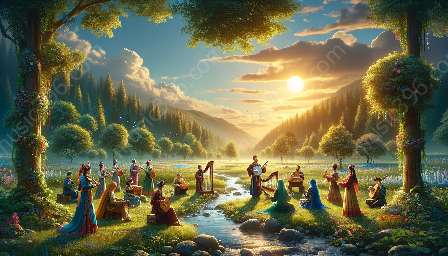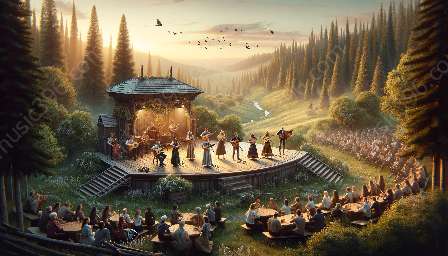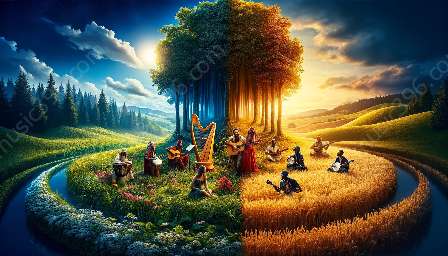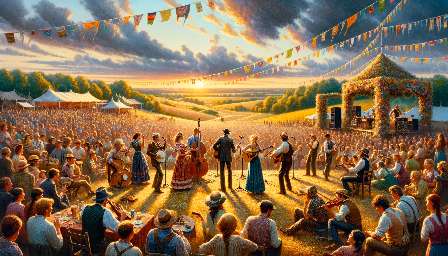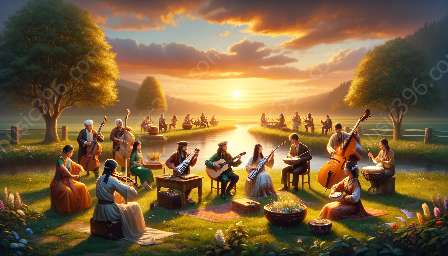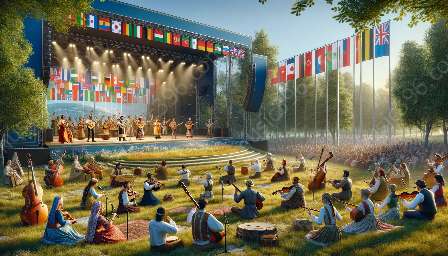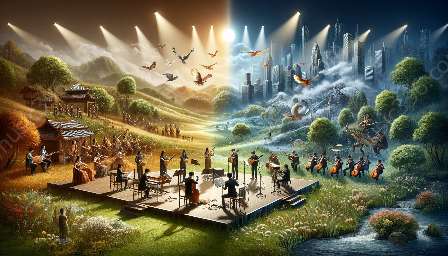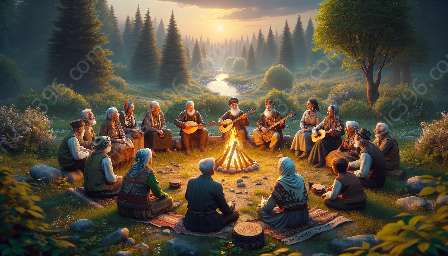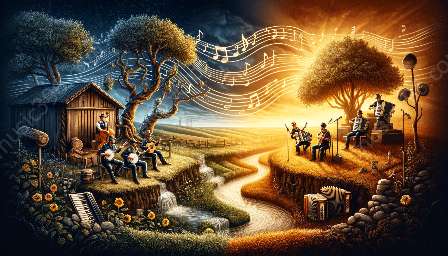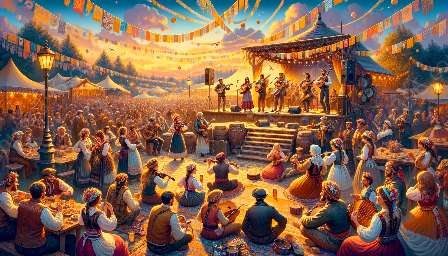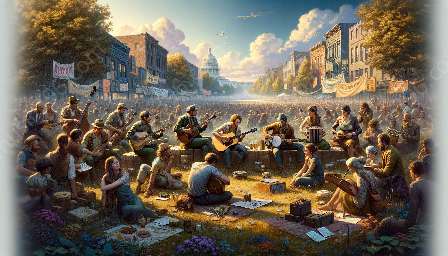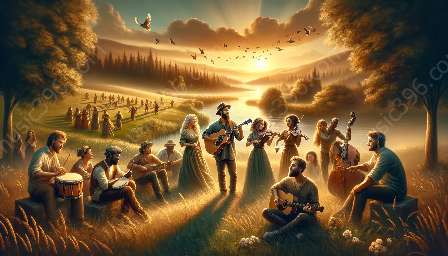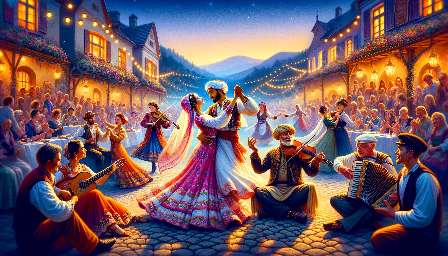Folk music songwriting is characterized by its deep ties to tradition, storytelling, and community. It encompasses a wide range of songwriting techniques that are rooted in cultural heritage and creativity, contributing to the rich tradition of folk and traditional music.
Let's delve into the key characteristics of folk music songwriting and explore the techniques that make it a vibrant and enduring art form.
The Spirit of Tradition
Folk music songwriting is deeply rooted in tradition, drawing inspiration from the history, culture, and folklore of a particular community or region. The songs often reflect the values, beliefs, and experiences of the people, serving as a means of preserving and passing down cultural heritage from generation to generation.
In folk music, songwriters pay homage to the traditions of the past while also infusing their compositions with fresh perspectives, ensuring the continuous evolution and relevance of the genre.
Storytelling and Narrative
Storytelling is at the heart of folk music songwriting. Through lyrics and melodies, folk songs tell tales of love, loss, triumph, and everyday life experiences. These narratives often reflect universal themes and provide a glimpse into the collective human experience.
Folk songwriters skillfully weave intricate stories into their music, captivating listeners and creating a profound emotional connection. The ability to convey authentic and relatable stories is a distinctive hallmark of folk music songwriting.
Simplicity and Authenticity
Folk music songwriting embraces simplicity and authenticity, with an emphasis on natural and unadorned expressions. The songs are often characterized by uncomplicated melodies, straightforward lyrics, and genuine emotions.
This unassuming approach allows the essence of the music to shine through, fostering a sense of intimacy and accessibility for both performers and audiences. Folk songwriters strive to create music that feels genuine and unpretentious, resonating with the core values of the genre.
Connection to Nature and Landscape
Folk music songwriting frequently draws inspiration from the natural world and the surrounding landscape. The lyrics often reflect a deep connection to the environment, celebrating the beauty of the countryside, the resilience of rural life, and the harmony between humanity and nature.
Songwriters in the folk tradition use evocative imagery and metaphors to evoke the sights, sounds, and emotions associated with the natural world, creating a vivid and immersive listening experience for their audience.
Community Participation and Collaboration
In folk music songwriting, community participation and collaboration play a crucial role. The process of creating and performing folk songs often involves collective input and shared experiences within a community, reinforcing the communal nature of the genre.
Collaborative songwriting, group singing, and collective storytelling are integral components of folk music, highlighting the interconnectedness of individuals and the power of music to unite and empower communities.
Songwriting Techniques in Folk Music
When exploring songwriting techniques in folk music, it becomes apparent that the genre encompasses diverse approaches that reflect its multifaceted heritage. From traditional ballads and protest songs to contemporary reinterpretations, folk songwriters employ various techniques to convey their artistic expressions.
Oral Tradition and Preservation
Folk songwriting often follows the oral tradition, passing songs down through generations via word of mouth. This method of preservation emphasizes the importance of maintaining the original integrity and authenticity of the music, ensuring that it remains true to its cultural roots.
Melodic and Lyric Structure
The melodic and lyric structures in folk music songwriting display a remarkable diversity, with some songs featuring simple, repetitive melodies and others showcasing intricate and evocative musical arrangements. This flexibility allows songwriters to convey a wide range of emotions and themes through their compositions.
Cultural Adaptation and Innovation
Folk music songwriters often engage in cultural adaptation and innovation, drawing inspiration from diverse musical traditions and incorporating new elements into their work. This open-minded approach enriches the genre, giving rise to vibrant fusions and eclectic expressions that resonate with contemporary audiences.
Instrumentation and Arrangement
The choice of instrumentation and arrangement greatly influences the mood and atmosphere of folk music compositions. From acoustic guitars and banjos to fiddles and harmonicas, folk songwriters skillfully select and arrange instruments to enhance the storytelling and emotional impact of their songs.
Folk & Traditional Music: A Rich Tapestry of Artistry
The exploration of folk music songwriting and its techniques reveals the depth and diversity of a musical tradition that has endured through centuries. Folk and traditional music showcase the resilience of cultural heritage, the power of storytelling, and the universal appeal of music as a means of connecting people across time and space.
As you immerse yourself in the captivating world of folk music songwriting, you'll gain a deeper appreciation for the key characteristics that shape the genre and the ingenuity of songwriting techniques that continue to enrich its legacy.

